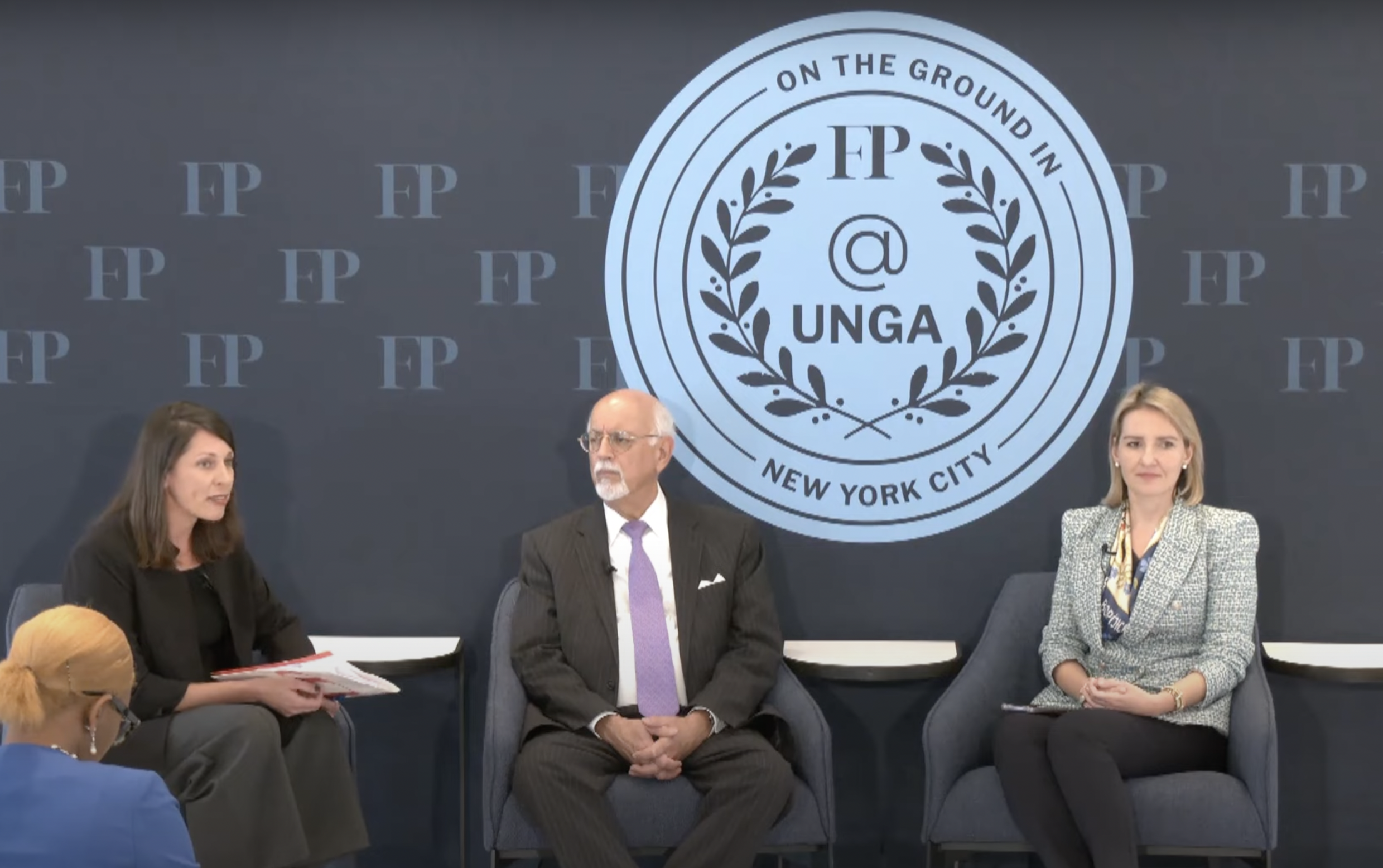
By Alexis Lee
Two Texas A&M University professors recently showcased their expertise at Foreign Policy’s Food+ forum.
Professor Andrew S. Natsios and Senior Lecturer Kateryna Shynkaruk, faculty members of the Bush School of Government & Public Service, took part in a panel discussion titled, “Weaponizing Wheat: Russia, Ukraine, and Global Food Security.”
Shynkaruk is a senior lecturer at the Bush School in Washington, D.C., and a nonresident scholar at the Carnegie Endowment for International Peace with expertise in East European politics and Ukraine’s foreign and security policies. She has over 15 years of academic and think tank-related experience. Shynkaruk holds a doctorate in Global Political Affairs from National Taras Shevchenko University of Kyiv.
Natsios is an executive professor at the Bush School with extensive experience in economic development and agriculture. He is also the director of the Scowcroft Institute of International Affairs. Natsios served as administrator of the U.S. Agency for International Development from 2001 to 2006, and as the U.S. special envoy to Sudan from 2006 to 2007. He has written multiple books addressing food security and is an expert on the intersection of geopolitics, development efforts and global food security.
The Food+ forum featured academics, policymakers and industry experts discussing food security issues alongside the 78th United Nations General Assembly in New York City. Foreign Policy asked experts to discuss the agricultural industry amid climate change, the fragility of global food systems in conflict zones, and viable solutions for the unique challenges these industries face.
Allison Carlson, Foreign Policy’s executive vice president of analytics and events, moderated the Sept. 20 discussion, which was one of multiple segments throughout Foreign Policy’s multi-day event.
“As you’ve been hearing and seeing today, there have been so many discussions about the innovations that are really contributing to greater food security around the world and resilience,” Carlson said. “This conversation is also going to be focused on what happens when those systems are destabilized and experiencing extreme shocks and what can be done to make those systems more resilient.”
Natsios and Shynkaruk’s panel addressed the food security issues triggered by escalating tensions between Russia and Ukraine, two nations significantly shaping the world’s food supply chain. Ukraine’s agricultural sector constitutes 20% of its gross domestic product (GDP) and 60% of its export revenue, making Russia’s strategy of “weaponizing food” a major issue for Ukraine’s economy as well as the world’s wheat and grain supply.
Shynkaruk said Russia benefits geopolitically and militarily from the disruption of the grain supply.
“Currently, 30% of Ukraine’s arable lands are mined,” she said. “This has been hitting hard Ukraine’s economy, Ukraine’s labor force, Ukraine’s GDP, and as a result, it has effects on its warfighting capability.”
Natsios stressed the gravity of the current geopolitical situation for food security.
“One of the things I learned in disaster management is, human systems can take one shock. Then the second shock, and you destabilize. Three or four shocks, the system collapses. We now have four major shocks going on to the world’s food system.”
Shynkaruk and Natsios also discussed the necessity of increased investment in agricultural technology, international development efforts and military support for Ukraine. Shynkaruk stressed the importance of continued air support for Ukrainian defense around the ports from which grain is exported. Natsios discussed how transport chokepoints on the seas are only exacerbating food scarcity issues. The experts’ conversation with Foreign Policy underscored the urgency of fostering more resilient agricultural production through security measures to mitigate food crises.
The following evening, Foreign Policy hosted a live taping of its podcast, Global Reboot, featuring U.N. Deputy High Commissioner for Refugees Kelly Clements, followed by a reception co-hosted by Texas A&M’s Bush School and Doha Debates. Another Bush School faculty member, former Ambassador John Hennessy-Niland, welcomed guests to the reception and provided brief remarks to the crowd. Drawing on his experience as former U.S. Ambassador to Palau, Hennessy-Niland spoke about the importance of continued dialogue among nations in resolving global issues.
